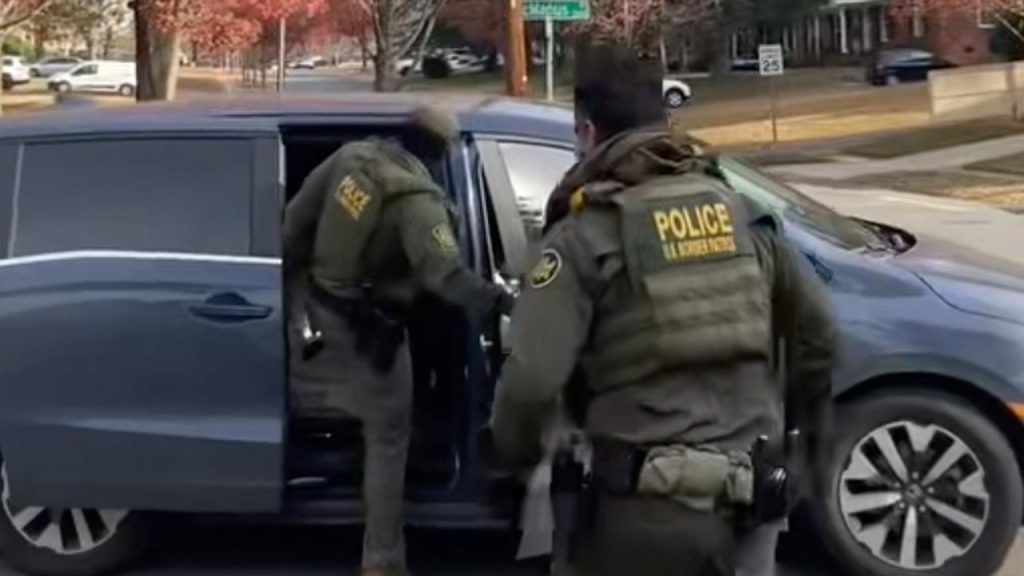Federal Immigration Crackdown Sparks Controversy in Charlotte
Federal agents descended upon Charlotte, North Carolina, on Saturday, launching a significant immigration enforcement operation that has ignited tensions between federal authorities and local officials. As part of a broader nationwide initiative, U.S. Border Patrol agents were observed making arrests throughout the city of more than 900,000 residents, creating scenes of chaos and concern among immigrant communities. Department of Homeland Security Assistant Secretary Tricia McLaughlin defended the operation, framing it as essential for public safety: “Americans should be able to live without fear of violent criminal illegal aliens hurting them, their families, or their neighbors.” The operation, according to federal authorities, represents part of a concerted effort to ensure “Americans are safe and public safety threats are removed.”
The Charlotte raids did not occur in isolation but follow similar enforcement actions in California, Illinois, Oregon, and New York in recent months. Contextually, the operation came in the aftermath of the fatal stabbing of Iryna Zarutska, a 23-year-old Ukrainian refugee, aboard a Charlotte light-rail train, though officials did not explicitly connect the two events. The day before the operation began, Mecklenburg County Sheriff Garry McFadden had announced that federal officials had notified him about the impending immigration enforcement action. This advance notice appears to have given local officials time to prepare their response, but not enough to prevent the operation itself from proceeding as planned by federal authorities.
The enforcement action quickly drew sharp criticism from Charlotte’s local leadership. Mayor Vi Lyles joined with Mecklenburg County Commissioner Mark Jerrell and Charlotte-Mecklenburg school board member Stephanie Sneed in issuing a unified statement opposing the raids, claiming they were “causing unnecessary fear and uncertainty” within the community. “We want people in Charlotte and Mecklenburg County to know we stand with all residents who simply want to go about their lives,” their joint statement declared. This response highlights the growing tension between federal immigration policies and local governance priorities, particularly in diverse urban centers like Charlotte that have significant immigrant populations who contribute to the economic and cultural fabric of the city.
The human impact of the raids became immediately apparent through firsthand accounts from residents. Willy Aceituno, a Honduran-born U.S. citizen, described witnessing “a lot of Latinos running” as Border Patrol agents pursued them. He reported being stopped twice himself during the operation, despite his citizenship status, raising concerns about potential profiling during such enforcement actions. The day before the operation began, local leaders had encouraged Charlotte residents to protest peacefully and document agents’ activities from a safe distance, anticipating the distress these actions might cause in immigrant communities. County Commissioner Susan Rodriguez-McDowell expressed her dismay at the situation, stating, “We are living in the strangest of times.”
These immigration enforcement actions in Charlotte exemplify the ongoing national debate about immigration policy and enforcement priorities. The federal government, particularly under administrations that emphasize stricter immigration control, maintains that such operations target individuals who pose genuine public safety threats and that removing undocumented immigrants with criminal histories makes communities safer. However, critics argue that broad enforcement actions often sweep up non-dangerous individuals, separate families, and create a climate of fear that makes immigrant communities less likely to cooperate with local law enforcement on other matters of public safety. This tension between federal enforcement objectives and local community impacts remains unresolved in Charlotte and across the nation.
The Charlotte immigration operation represents a microcosm of America’s complex and often contradictory approach to immigration. While federal agencies assert their legal authority to enforce immigration laws throughout the country, local leaders increasingly find themselves caught between compliance with federal directives and their responsibilities to all residents of their communities, regardless of immigration status. As enforcement actions continue across various cities, the fundamental questions remain: How can communities balance security concerns with humanitarian considerations? What responsibilities do local officials have to cooperate with or resist federal immigration enforcement? And ultimately, how can the United States develop an immigration system that is both orderly and humane? The ongoing events in Charlotte offer no simple answers, but they vividly illustrate the human consequences of these policy decisions and the deep divisions they create in American society.


